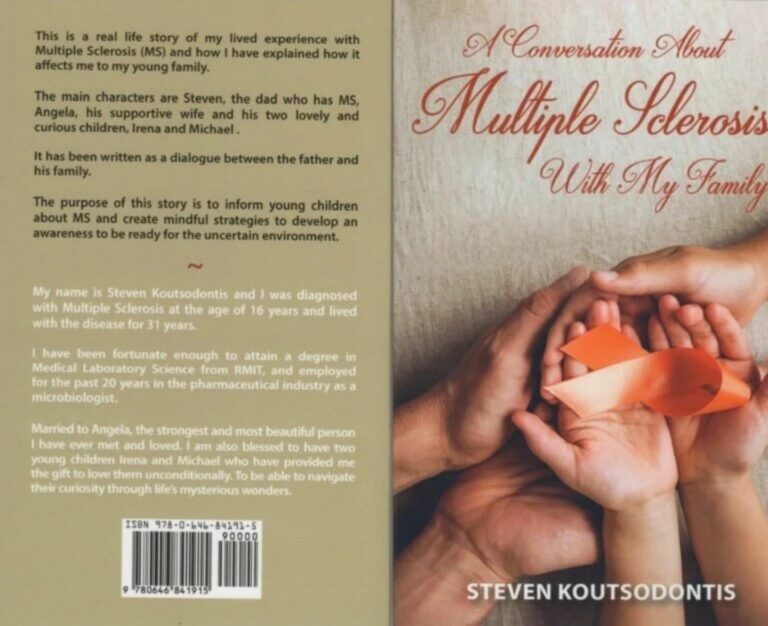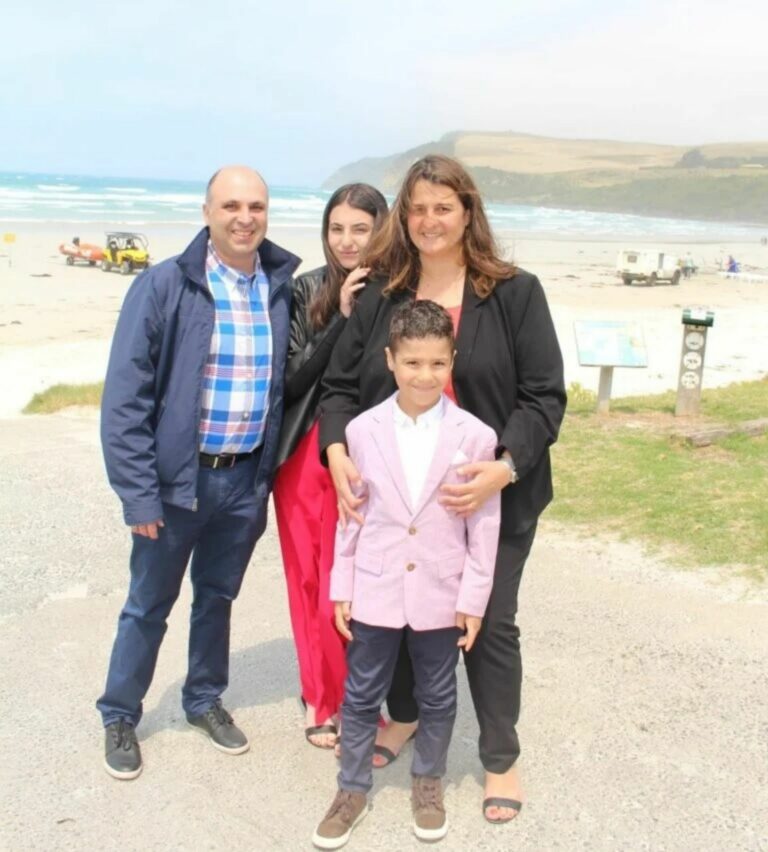At just 16 years of age, Steven Koutsodontis was diagnosed with Multiple Sclerosis (MS).
Since that fateful day, he has gone on to live a fruitful life but also felt it was important to share what living with the disease is like.
Mr Koutsodontis penned a book titled A Conversation About Multiple Sclerosis With My Family detailing all of his feelings and knowledge about the disease.
The book follows a dialogue between the author and his family; his wife Angela and their two children, Irena and Michael.
“My goal with this book is to teach children about multiple sclerosis (MS) and to prepare them emotionally for what they are going to face when one of their parents suffers from the disease. I also want to offer them the assurance and certainty that their parents’ love for them is not affected”, Mr Koutsodontis told Neos Kosmos.
“The biggest inspiration for me to write this book was my children. I wanted to explain to them why their dad sometimes can’t do what other dads can do.”
READ MORE: Dr Steve Petratos is one step closer to MS breakthrough treatment

THE DIAGNOSIS
When Mr Koutsodontis was first diagnosed with MS his parents did not reveal to him the whole truth about his state of health at that time, “perhaps because the neurologist probably thought that it would be well managed with medicines at least in the short term “.
Thus, his questions of what was happening were answered with the vague and general explanation “inflammation of the nerves”.
“I had symptoms of extreme fatigue, diplopia, numbness and loss of strength on the left side of my body and I had to stay for weeks away from school to get better with rest and taking steroids. After a month the symptoms magically disappeared, but I was no longer had the same strength.
Each attack of the disease dramatically affected my physical condition and from the 100 percent I was at, I dropped to 90 percent from the first attack, then the next attack took me to 80, the next to 75 and so on.
My hair started to fall out due to steroid treatment, which really threw me and made me feel terribly vulnerable. I started to get depressed,” Mr Koutsodontis said.
READ MORE: Opinion: When our elderly family’s health becomes lost in translation

UNDERSTANDING THE DISEASE
Mr Koutsodontis continued going to school, hiding his condition from friends.
He eventually graduated from high school and jumped into studying health sciences.
“Curiosity about my condition made me choose this field. I’m glad I did because that way I understood MS better and I stopped being afraid, because I realised that with the right treatment of the disease I could live a good life.”
Mr Koutsodontis obtained his degree in Microbiology and Immunohematology and worked as a microbiologist for 20 years.
“I now help support people with disabilities through the NDIS (National Disability Insurance Scheme).”
Although Mr Koutsodontis has turned his diagnosis into something positive over the years, MS is still something that needs to be managed around the clock.
“The fatigue and its management in my daily life is exhausting. It is also very painful and annoying to deal with the constant spasms of my lower limbs when I am trying to rest. This causes uncertainty due to my poor gait when I walk, as I drag my foot, which in some cases results in me losing my balance and falling,” he explained.
“Unfortunately, multiple sclerosis, apart from being chronic, is also a degenerative disease. It is not curable and the duration of effectiveness of the drugs used to manage it depends on the body’s resilience or the development of tolerance to treatment. The worst thing is when you wonder how much better your life could be if you did not have MS.”
READ MORE: The diary-turned-book of an immigrant single mother from Cyprus surviving in Australia
LIVING LIFE TO THE FULLEST
Life with a chronic illness may not give you much room to make long-term plans, but that doesn’t stop Mr Koutsodontis from enjoying every day to its fullest.
“My illness has never been an obstacle to anything I wanted. Life is a gift and we must live it as best we can. And if we can help others, why not?”
Of course, his day-to-day wouldn’t be possible without his loving wife Angela.
“This is probably the hardest part of the disease. Why do the other members of my family that I love so much have to suffer with me? They did not choose to have a father with multiple sclerosis…My wife, Angela, is my angel. She is the one who has to do most of the outside housework, such as mowing the lawn, taking care of the house maintenance and other very important things,” Mr Koutsodontis said.
If you would like a copy of A Conversation About Multiple Sclerosis With My Family, you can contact Mr Koutsodontis at koutsodontis@optusnet.com.au